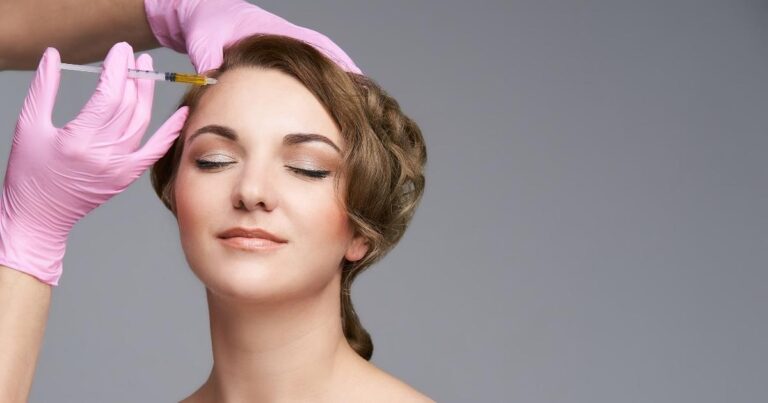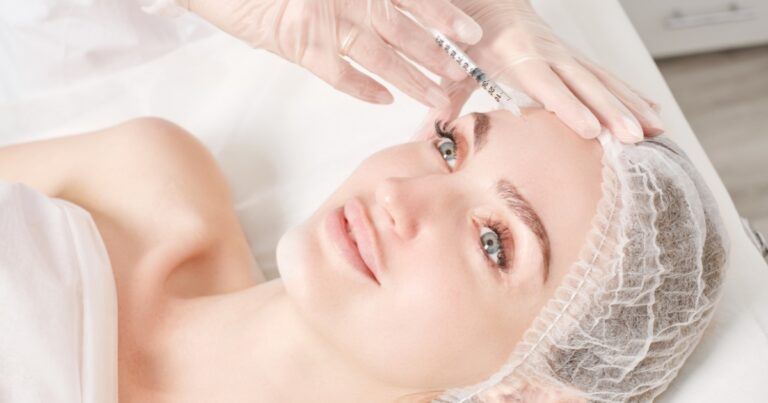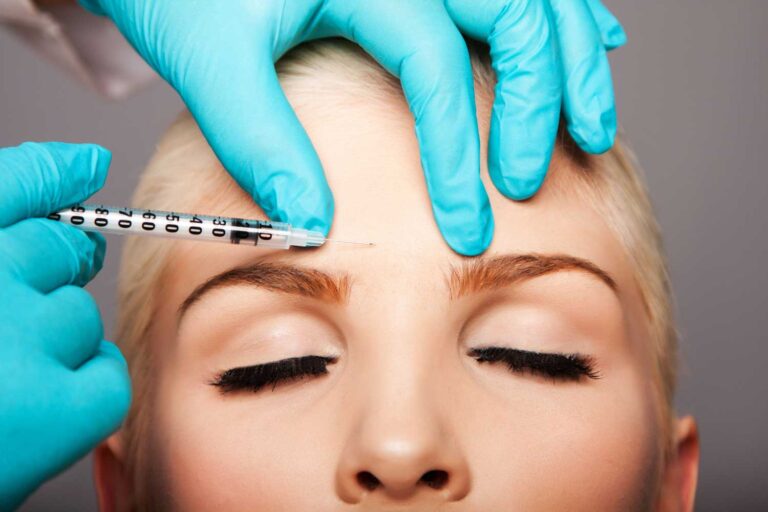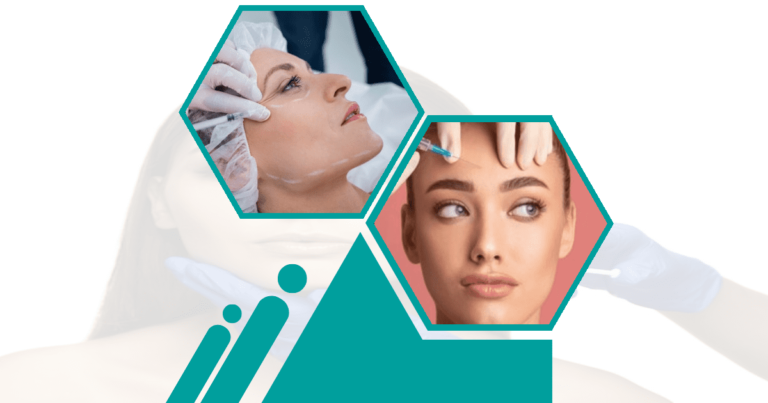Botox is an injectable neurotoxin approved by the FDA. About 11 million people worldwide use botox to minimize wrinkling and other fine lines on the face by reducing muscle movement. Patients get a younger and softer look after a few days.
Botox is also approved for other uses, such as treating excessive sweating. For these benefits, botox is one of the most popular cosmetic procedures.
As changing one’s appearance can increase one’s confidence, it should come as no surprise that patients report feeling better and more confident about themselves after undergoing botox. Scientists have found links between Botox treatments and improved psychological health.
Let’s have a look at how Botox has improved psychological condition:
Book A Consultation With Dr Tarek Bayazid
Top-rated Plastic Surgeon For Botox in Dubai
Installment Plan Available
Reduced Feelings of Major Depression
Living with major depression is tough. Looking for treatment options is even more frustrating. Botox is a solid solution to this psychological problem if you’re tired of trying conventional methods. Clinical trials indicate that Botox is a quick, effective, and safe solution for patients with major depression.
According to Darwin’s facial feedback theory, feedback from the face affects emotions. There’s a strong link between facial feedback and neural activity. Botulinum toxin smoothens your wrinkling, making it difficult to make facial expressions such as frowning. In the same way that smiling makes people feel better, frowning can make people feel even more depressed. Hence, Botox therapy may uplift people’s emotions by removing the frowns from their faces.
Research shows that people who received botox injections reported depression 40%-88% less often, compared to those who got treatment for depression. Studies also suggest that Botox can help relieve muscle spasms and shift your brain chemistry. Botox injections could cause an increase in 5-hydroxytryptophan, which triggers serotonin, the happiness hormone.
Botox also shifts how you feel about yourself. It’s depressing when your physical appearance does not match your innate spirit. The botox treatment resolves this inner conflict, restoring your sense of self and possibly reducing depressive symptoms.
Improved Self-Confidence
Many people are self-conscious about their appearance because of the wrinkles around the eyes and forehead. But what exactly causes wrinkles to form over time? Wrinkles, especially on the forehead, are a sign of aging and can be caused by factors outside one’s control, such as lifestyle, diet, stress levels, and how much exercise they do. But luckily, botox treatment can help you boost your self-confidence by removing those wrinkles from your face and giving you a much younger look.
The improvement in physical appearance empowers you instantly. You no longer feel inadequate in your appearance. This improves your self-esteem, making you more confident. The cosmetic procedure gives you more confidence to break barriers in environments such as your job. It renews your belief in your abilities as you feel more capable. Remember, your physical look contributes mainly to your emotional state.
Reduced Anxiety
Isn’t it irritating when you can’t get rid of those lines and wrinkles on your forehead? When we are dissatisfied with our appearance, we often think that others share the same feelings of disapproval. This may result in feelings of anxiety from our self-conscious thoughts. By receiving botox injections, we get a sense of control over the appearance of wrinkles. The satisfaction we get helps a lot with anxiety.
Better Quality of Life
Once you get botox, you have one less thing to think about. You no longer need to worry about wrinkles and fine lines before leaving. Botulinum injections may give you more confidence in other areas of your life. You are more willing and open to trying new things, which enhances your quality of life.
Botox also helps with other problems such as blepharospasm, hyperhidrosis, and an overactive bladder. When injected into the specific muscle, botox injections can block the nerve that causes uncontrollable twitching. You can also get better bladder control. The injections rid you of the discomfort that such conditions cause. This improves your quality of life and, ultimately, your mental well-being.
Decreased Stress
We exist in a world of constant comparison with platforms such as social media. The feeling that we must measure up to the standards can be stressful. Among other cosmetic benefits, botulinum toxins help us change our problem areas. Your doctor can inject botox into specific areas that stress you. After three to four months, you no longer need to stress about your injection sites, and you’ll have a youthful look, thus less stress.
Renewed Motivation
The youthful look that patients get from botox gives them a renewed motivation to live life. When you look and feel better, it gives you the motivation to pursue your goals. The physical adjustments from Botulinum toxin injections positively impact your motivation.
Borderline Personality Disorder
This disorder affects how people feel and think about themselves and others. It could result in self-image issues, making it difficult to manage emotions and behavior. Botulinum toxin injections interrupt the feedback loop between the brain and forehead muscles. The injections also reduce the emotional fire in the tonsil nucleus. This reduces high tension, which is prevalent in BPD patients.
Pain Relief
The use of botulinum injections also cures problems like chronic migraines. By blocking the neurotransmitters that cause pain, the cosmetic procedure allows you to return to your normal activities.
People that experience pain has a higher risk of developing psychological problems like depression and anxiety. Botox can cure chronic migraines, allowing you to live a pain-free life. A study shows that migraine patients are more likely to experience anxiety and nervousness.
Better Sleep
People with chronic migraines tend to experience sleep disturbances and fatigue. After getting botox injections, the chronic migraines stop, and patients can sleep better. According to a clinical trial in South Korea, Australia, and the United States, patients who got botulinum injections every 12 weeks slept better. Poor sleep is linked to depression and other mental health problems like psychosis, paranoia, and anxiety, so getting some Botox can help you feel less stressed and have a more restful night’s rest.
Improved Adoption of Healthier Habits
You are more motivated to adopt healthy activities like working out when you look younger. The improved appearance psyches you up to live a healthier lifestyle that’ll help you achieve your desired appearance. Botox injections will motivate you to continue to do better for your skin and overall health. You no longer feel embarrassed about looking old, encouraging you to sign up for that cardio class.
Schedule a Botox Treatment
The dermatology world has taken great strides in innovating botox treatments to help with skin problems. It’s great to learn that skin benefits extend to psychological benefits as discussed above.
Isn’t it great that you can simultaneously improve your physical appearance and psychological well-being? Then why are you delaying? Make an appointment with Dr. Tareq right away to get rid of those bothersome wrinkles.







